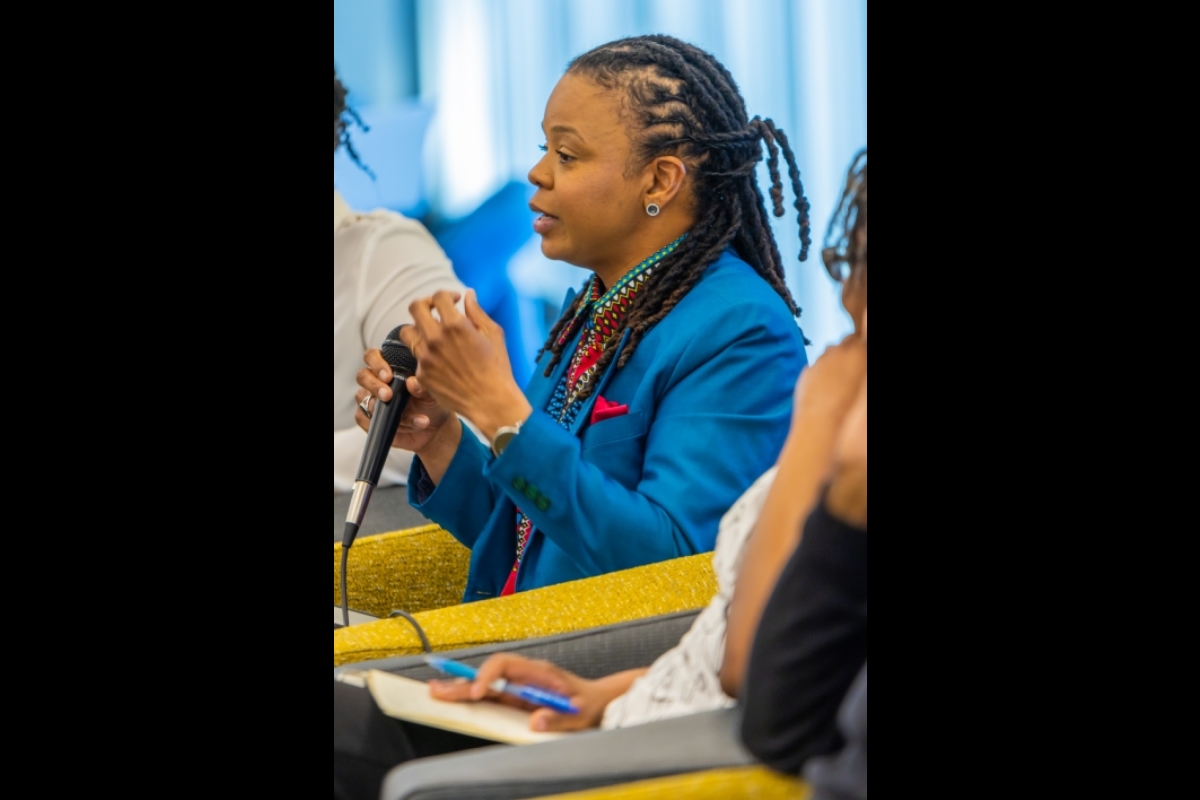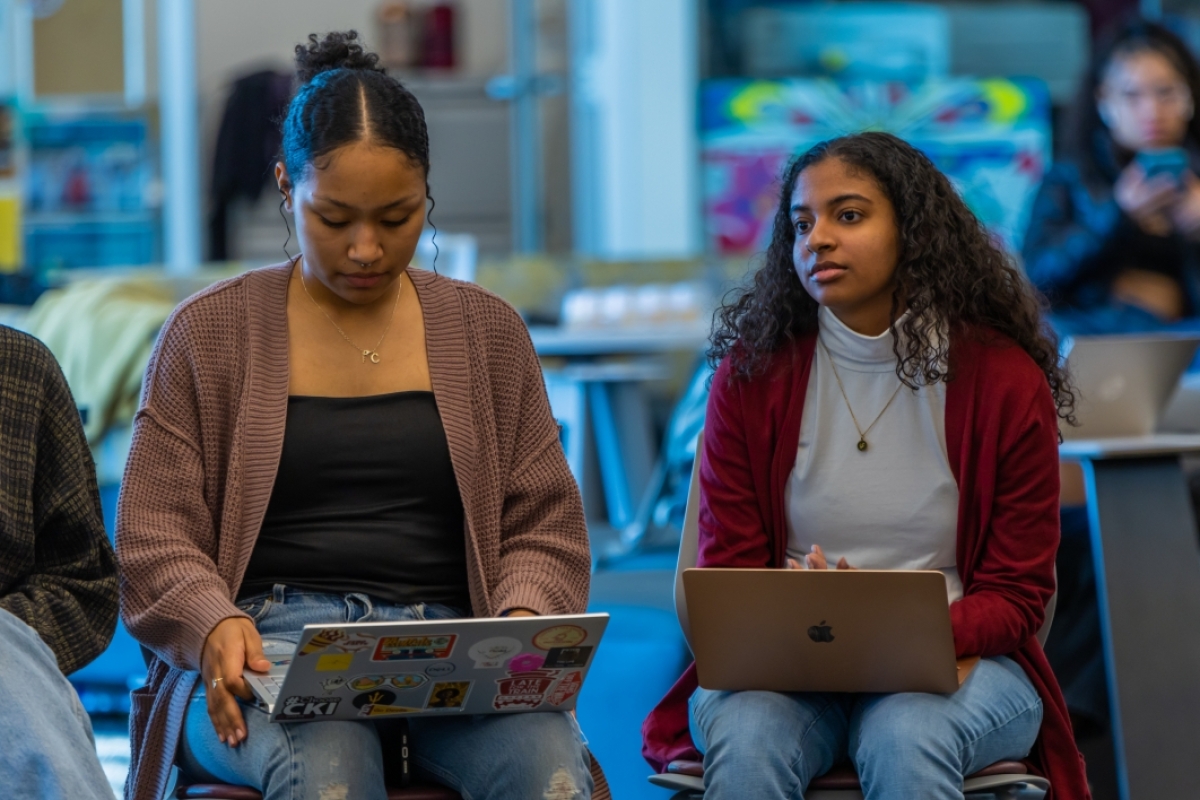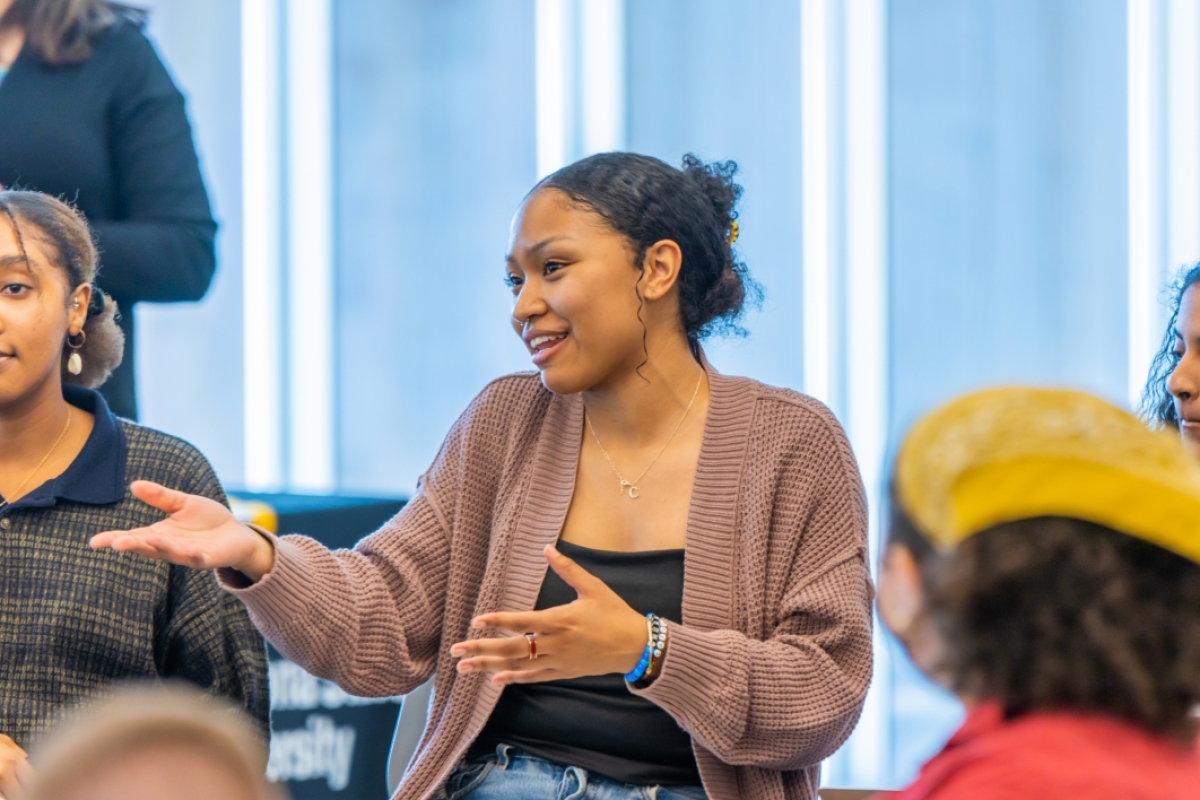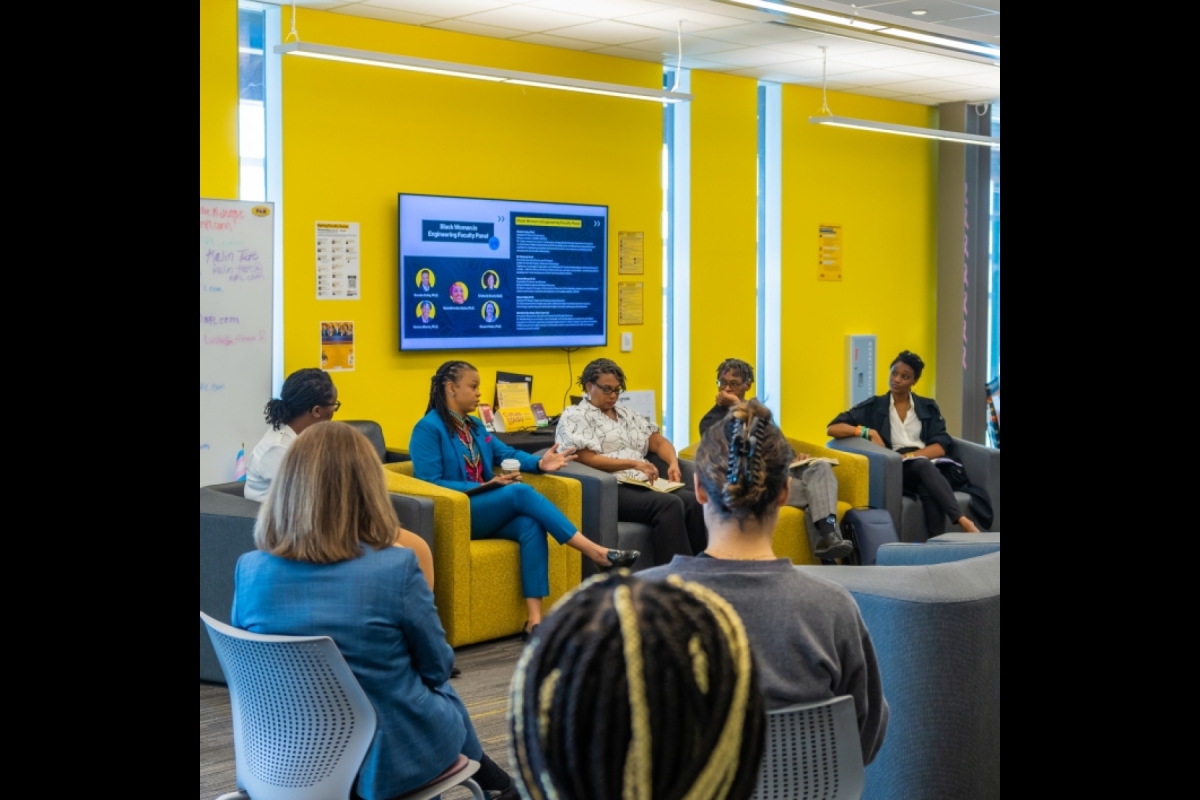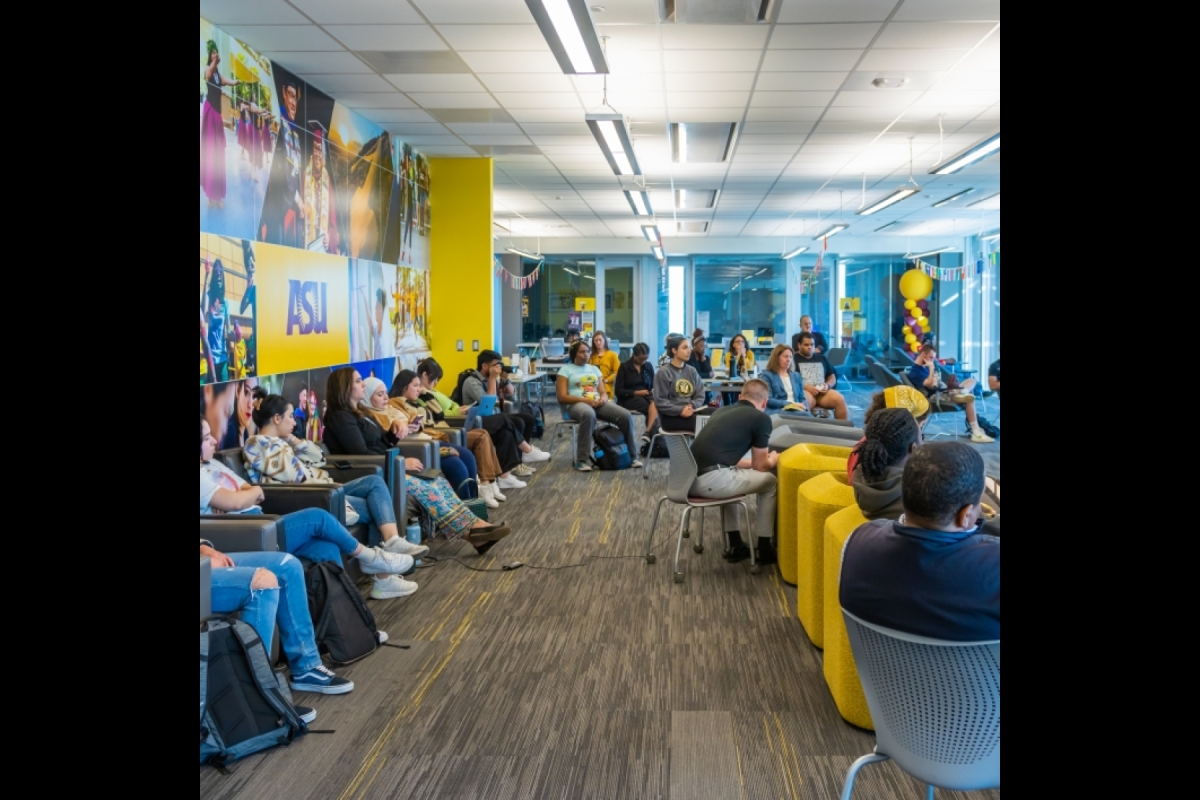Black Women in Engineering panel provides perspective for students pursuing careers in STEM
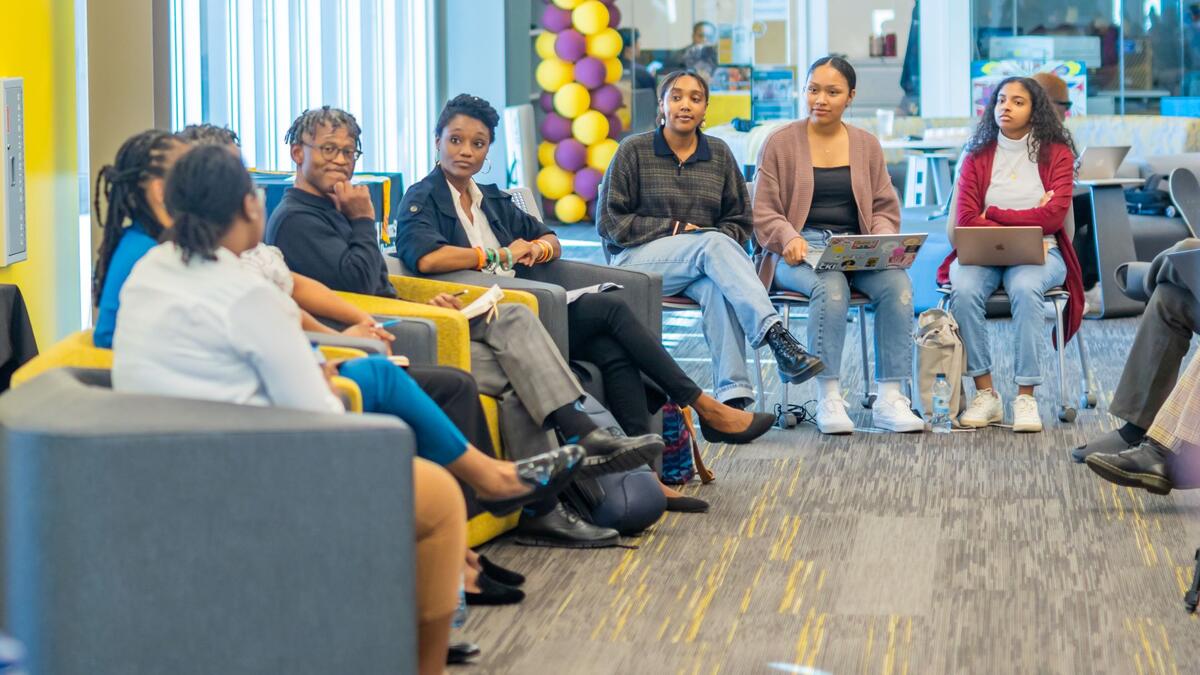
This month, the Tempe campus Multicultural Communities of Excellence space kicked of its spring faculty series with a Black Women in Engineering/STEM Faculty panel where students could hear from faculty members and gain more insight into fields where women and minorities are underrepresented.
“Remain authentic and look for mentors,” advised Brooke Coley, assistant professor of engineering in the Ira A. Fulton Schools of Engineering.
Coley told the audience that she didn’t quite know what her life journey would look like, but she knew her core values and was committed to justice, and remained true to that guiding principle.
Coley was joined by four other professors — Kimberly Scott, founding executive director and professor at the Center for Gender Equity in Science and Technology; Vernon Morris, from the New College of Interdisciplinary Arts and Sciences; and Meseret Hailu, assistant professor of higher and postsecondary education in the Mary Lou Fulton Teachers College; and Marielle Iroko Abalo, an interdisciplinary scientist who works at ASU's Education Outreach and Student Services.
“Events like the 'Black Women in Engineering/STEM Faculty Panel' create an opportunity to expand the perspectives in these fields. It promotes an expanded narrative of who represents the driving force within these fields," said Kira Gatewood, assistant dean for Educational Outreach and Student Services. "Often these voices are not at the forefront because they do not represent the majority of those in the field. Events like this provide a platform for these women to be recognized for their contribution and provide them a platform to share about their excellence.”
The members of the panel each spoke about the individual experiences that shaped their lives and helped them become who they are today.
Scott talked about the exact moment that made her realize she wanted to pursue a career in STEM; she had been working as a special-needs teacher when she saw another teacher yelling at a student and she secretly hoped she would not have that student, only to find out that the next year she did. After speaking to the child’s mother, she realized that the student needed different interventions to be successful. That was the moment that made her go on to Rutgers University to address the myth that some kids cannot be successful.
Understanding that the learning process is not the same for everyone, she says, is so important.
According the Pew Research Center analysis, Black and Hispanic workers are highly underrepresented in science, technology, engineering and math professions.
“For me, personally, events that shine a spotlight on those history likes to forget, or overlook, is a win. These women work hard at what they do and should be applauded for their contributions,” Gatewood said.
Caroline Pete, a junior earning a degree from the Ira A. Fulton Schools of Engineering, who helped facilitate the event along with her STEM classmates, said, “Being able to talk to faculty doesn’t always come that often, and being in the same room with them and having them accessible was great.”
Pete, a Tempe, Arizona, native who went to McClintock High School, has always had an interest in math and science and plans to become a neuroscience professor.
“More research needs to be done and it comes naturally for me,” Pete said
Video by Ken Fagan/ASU News
The Multicultural Communities of Excellence spaces on each campus bring diverse student groups together in a welcoming environment. There are currently eight student coalitions utilizing the Multicultural Communities of Excellence, but everyone is welcome. Find each campus location: Downtown Phoenix, Tempe, West and Polytechnic.
The spring faculty series offers an array of diverse programming meant to inspire collaborative conversation and open dialogue between students, faculty and peers. View the schedule of upcoming Multicultural Communities of Excellence events.
Top photo: The Black Women in Engineering/Faculty STEM panel held at the Multicultural Communities of Excellence space on the Tempe campus on Feb. 8. Photo by Christopher Goulet/Arizona State University
More Science and technology

Applying AI to microelectronics manufacturing
Rivers flow across the planet’s surface, carving deep valleys and intricate canyons. Likewise, makers of microelectronics direct plasma, an ionized gas, to travel over silicon wafers, etching…

Applied Materials invests in ASU to advance technology for a brighter future
For nearly 60 years, global giant Applied Materials has been hard at work engineering technology that continues to change how microchips are made.Their products power everything from flat-panel…

Meet ASU engineering students who are improving health care, computing and more
Furthering knowledge of water resource management, increasing the efficiency of manufacturing point-of-care health diagnostic tools and exploring new uses for emerging computer memory are just some…


